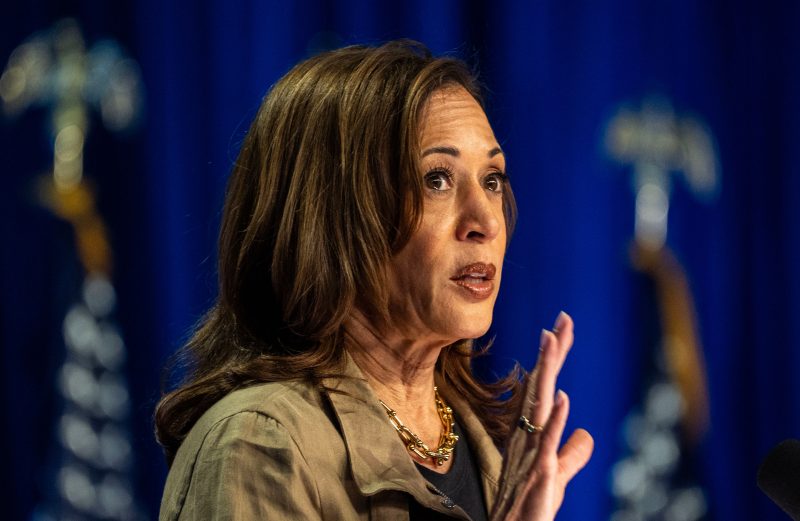In recent times, the stark contrast between the economic policies and approaches to border security of Vice President Kamala Harris and former President Donald Trump has become increasingly apparent. While Harris and Trump represent two vastly different ideological standpoints, their differing perspectives have significant implications for the country’s economy and border control measures.
Vice President Harris, a Democrat, has emphasized the importance of inclusive economic policies that prioritize equity and environmental sustainability. In contrast, former President Trump, a Republican, focused on boosting the economy through deregulation and tax cuts, often prioritizing corporate interests over social welfare programs. Harris’s economic vision revolves around investing in education, healthcare, and infrastructure to build a more equitable society, aiming to reduce income inequality and provide a safety net for vulnerable populations.
On the other hand, Trump’s economic agenda centered on lowering taxes, reducing government regulation, and fostering a business-friendly environment to stimulate economic growth. While Trump’s approach yielded strong short-term results in terms of job creation and stock market performance, critics argued that it exacerbated income inequality and failed to address systemic issues such as healthcare access and affordable housing.
When it comes to border security, Vice President Harris and former President Trump also stand on opposite ends of the spectrum. Harris advocates for a more compassionate and holistic approach to immigration, emphasizing the need to address root causes of migration such as poverty, violence, and corruption in sending countries. She has called for a pathway to citizenship for undocumented immigrants and a more humane treatment of asylum seekers at the border.
In contrast, Trump took a hardline stance on immigration, pushing for stricter border enforcement measures such as building a physical barrier along the US-Mexico border and implementing travel bans on several Muslim-majority countries. Trump’s zero tolerance policy led to family separations and drew widespread condemnation from human rights organizations and the international community.
As the Biden administration continues to implement its policy agenda, the contrast between Vice President Harris and former President Trump’s economic and border security approaches will likely remain a point of contention. While Harris advocates for a more progressive and compassionate vision for the country’s economy and immigration system, Trump’s legacy continues to influence the Republican Party’s platform, shaping debates on fiscal policy and border control.
The outcomes of these contrasting approaches may have far-reaching implications for the American economy and national security. It remains to be seen how the Biden administration will navigate these divergent perspectives and whether the policies implemented will address the complex challenges facing the nation in a comprehensive and inclusive manner.
